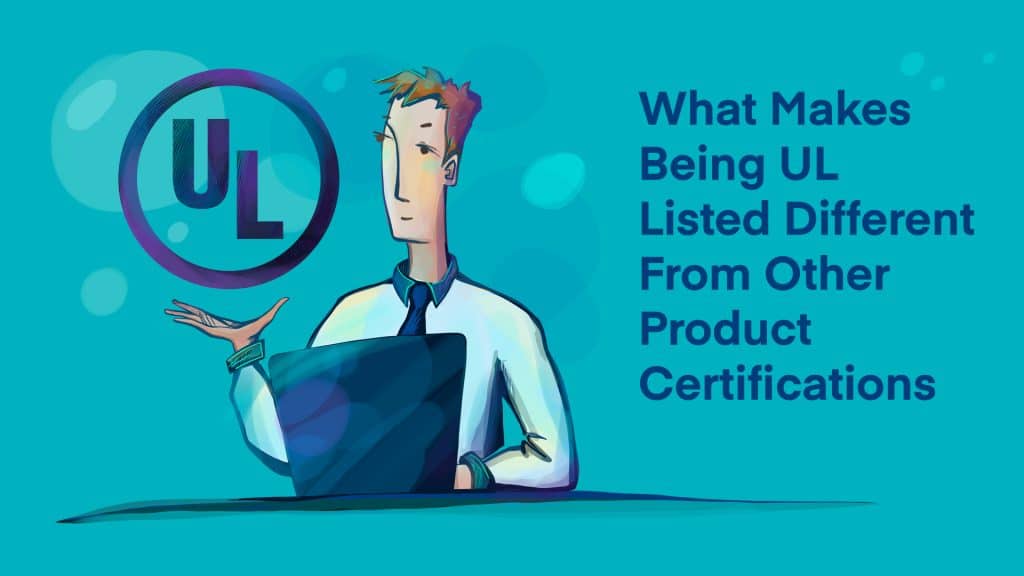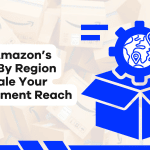
Underwriter Laboratories (UL) is a global leader in safety science that has spent over a century establishing its reputation as a rigorous third-party product certification company. Founded in 1894, the company’s mission has remained the same for over a hundred years: to promote safe living and working environments for people.
The UL insignia is a universally recognized symbol of quality and safety found on countless products worldwide. As such, attaining a product certification mark from UL or other reputable labs can not only make a product more marketable than uncertified competitors, but it can also fulfill a prerequisite for buyers who must comply with corporate or governmental safety requirements.
Why Product Certification Matters
Certifying a product can be lengthy, rigorous, and expensive. It usually involves a variety of field and lab tests designed to push a product to its limits in various conditions. The goal is to ensure that a product cannot only perform its advertised function but also operate safely and reliably in the field.
However, should a product achieve certified status from a relevant third-party testing laboratory, it opens the door to marketing opportunities and a broader potential customer base. A product certification usually entitles a product to include the relevant certification branding and a description of the certification on the packaging, marketing materials, and online listings.
Many customers seek out these familiar product certification logos to indicate product quality. This is particularly important in ecommerce, where customers often have to make a purchasing decision without actually being able to try a product before buying it.
Some of the most sought-after certification marks include:
- The UL Listed symbol (the letters UL in a black circle, usually with the word Listed underneath) is one of the most recognizable and consistent indicators of product quality in electronics. Its extensive track record and rigorous standards are virtually unmatched.
- The Conformitè Europëenne logo (a capital C and E in a matching curved font) indicates that a product has met the standards for sale in the European Union (EU). All products sold in the EU must acquire a CE certification. This is something to consider as you expand your ecommerce brand internationally.
- The Federal Communications Commission (the letters F, C, and C with the second C circumscribed inside of the first) signifies that a product does not create substantial enough electromagnetic interference to violate US federal limits. These thresholds prevent unshielded electronics from interrupting broadcast and/or communication signals.
- The EnergyStar symbol (a blue square with the word ‘energy’ in a white script followed by a star) indicates an electronics product that has met US Environmental Protection Agency (EPA) standards for energy efficiency.
While there are plenty of additional third-party certifications available—many specific to certain classes and types of products—these represent some of the most critical for ensuring the safety, reliability, and compliance of electronic products. Compliance and safety are valuable to the average consumer and are often requirements for government and B2B sales.
These larger organizations typically operate under strict scrutiny and must ensure that the products they purchase and use fall within specific guidelines. If you want to create lucrative contracts with strong potential for repeat orders, it is worth considering acquiring the appropriate product certifications to tap into these arenas.
For example, anyone running a business knows the Occupational Safety and Health Administration (OSHA). The US Department of Labor requires businesses to comply with OSHA’s stringent workplace safety regulations. These regulations include the products, tools, and equipment used within a workplace.
To remain compliant, many businesses must be equipped exclusively with electronic products that have passed certification tests by nationally recognized testing laboratories (NRTLs), of which UL is one. OSHA holds these NRTLs to rigorous standards, including verifiable independence, acceptable testing protocols, follow-up quality control checks, procedures for addressing complaints, and more.
If American B2B or B2G clients are a priority target for your omnichannel ecommerce business, product certification is more than just a marketing tool; it is a requirement.

What Makes Being UL Listed Different From Other Product Certifications?
Since product certification can require a substantial commitment of time and resources, you need to be sure that the certifications you pursue can deliver the impact you seek. This makes attaining a high-value UL certification particularly appealing—it is widely recognized by customers and widely respected by institutions that are strict about product safety standards.
UL offers two certification tiers: UL Recognized and UL Listed. While both indicate that UL has tested the product in question, there is a significant difference between them.
- UL-recognized certifications are typically reserved for components used in larger machines or mechanisms. This certification is geared less toward the typical consumer than to engineers and developers seeking the most reliable parts for use in more complex product designs.
- UL-listed certifications for products (UL-listed status can also be awarded to systems, personnel, facilities, and processes) indicate that the products have been subjected to various tests for compliance with applicable UL standards. UL-listed products are verified to meet or exceed national safety and sustainability standards while meeting acceptable levels of shock and combustibility hazard prevention.
It is important to know that once a product is UL-listed, it does not necessarily carry a UL seal of approval for life. UL Listed products are subjected to ongoing, unannounced quality checks to ensure quality levels are maintained. Similarly, if a UL-listed product is modified, it must be retested to ensure that the changes do not negatively impact the reliability and safety metrics of the original tested version.
This diligence and attention to detail help make UL-listed products appealing to customers, businesses, and public institutions. Since the procedure for certifying a UL-listed product and the product itself are likely more complex than those of a component receiving UL Recognized status, UL-listed status is naturally the more challenging product certification to acquire. It also makes UL Listed certification desirable for most retail, B2B, and B2G sellers.
For more on how Descartes Sellercloud modules can become the cornerstone of your omnichannel ecommerce management and warehouse logistical workflows, contact us directly for a free demo and consultation.




